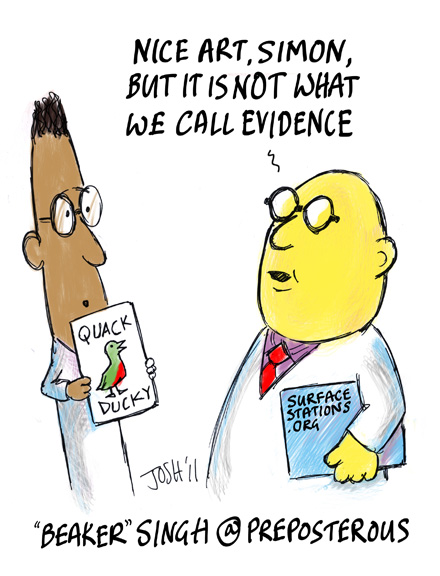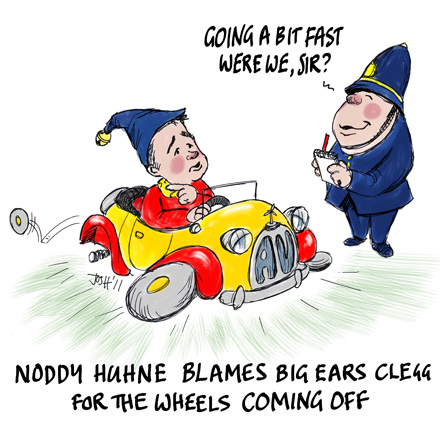 Bishop Hill
Bishop Hill Oz chief scientist: I'm a lobbyist
 May 9, 2011
May 9, 2011  Bureaucrats
Bureaucrats If anyone was under any illusions about the true role of government chief scientists, this interview with the new occupant of that role in the Australian civil service should dispel them.
Science advocate
Chubb says that he will be a proactive lobbyist for science, helping the government and the public to appreciate the role of science in coping with the major challenges facing society. Doing this, he says, should help to insulate science from budget cuts. "If we can get science and its value to the community sufficiently high up the priority list," he says, "the job should be half-made each year before you go into bat for specifics."
Commendable honesty, but why on earth should scientists have their own lobbyists on the inside of government? This reminds me of the recent scandals here in the UK, where healthcare trusts were revealed to be paying for union reps out of the public purse. Paying for union reps and paying for lobbyists does not seem materially different to me. Either way, these recipients of all this public largesse are not working for the benefit of the people but for themselves and their pals.
I wonder if Sir John Beddington also sees himself as a union rep for the scientific community who just happens to be paid out of public coffers?





